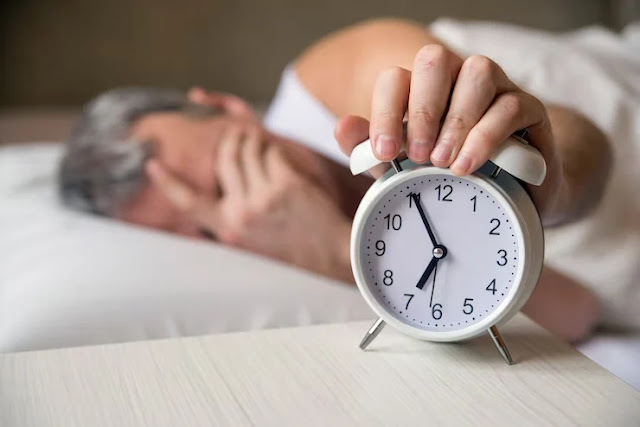Better Sleep: Tips for Achieving a Restful Night
Sleep is a crucial aspect of our lives that often goes overlooked. The fast-paced world we live in can make it challenging to prioritize getting enough sleep. However, the importance of sleep cannot be underestimated, as it has far-reaching effects on our physical and mental health. In this article, we will explore the significance of sleep, what happens when we don’t get enough of it, and how to get a good night’s rest.

1. The Importance of Sleep
A. Physical Effects of Sleep
Good sleep is essential for our physical health, as it helps us to repair and restore our bodies. During sleep, our bodies release growth hormones, which help to stimulate cell growth and repair. Additionally, sleep is necessary for the proper functioning of our immune system, which helps us to fight off illnesses and infections.
B. Mental Effects of Sleep
Not only does sleep benefit our physical health, but it is also crucial for our mental health. Sleep helps to reduce stress and anxiety, improve our mood, and increase our ability to focus and concentrate. Additionally, sleep plays a crucial role in memory consolidation, allowing us to store and retain information.
C. Benefits of Good Sleep Hygiene
By incorporating good sleep hygiene into our lives, we can ensure that we are getting the rest that we need to live our best lives. Good sleep hygiene includes habits such as establishing a bedtime routine, creating a sleep-conducive environment, and reducing screen time before bed.
2. The Consequences of Lack of Sleep
A. Physical Health Consequences
Lack of sleep can have a range of negative effects on our physical health, including weight gain, increased risk of heart disease, and decreased immune function. Additionally, sleep deprivation can lead to fatigue and decreased energy levels, making it difficult to engage in physical activity and lead an active lifestyle.
B. Mental Health Consequences
Sleep deprivation can also have negative effects on our mental health, including increased anxiety and depression, decreased ability to focus and concentrate, and decreased ability to make decisions and solve problems. Additionally, lack of sleep can interfere with our ability to process emotions and increase the risk of mood swings and irritability.
C. Impact on Daily Life
Lack of sleep can have a significant impact on our daily lives, making it difficult to perform well at work or school, maintain healthy relationships, and engage in physical activity. Additionally, sleep deprivation can make it difficult to function effectively, leading to decreased productivity and decreased quality of life.
3. How to Improve Your Sleep
A. Establishing a Bedtime Routine
Establishing a bedtime routine is a crucial aspect of good sleep hygiene. This can include simple habits such as reading a book, taking a warm bath, or practicing relaxation techniques before bed. Having a consistent bedtime routine can help to signal to your body that it is time to wind down and prepare for sleep.
B. Creating a Sleep-Conducive Environment
Creating a sleep-conducive environment is also important for good sleep hygiene. This includes things such as keeping your bedroom cool, dark, and quiet, using comfortable bedding, and reducing distractions such as electronics and noise. By creating a sleep-conducive environment, you can increase the quality of your sleep and reduce the time it takes to fall asleep.
C. Reducing Screen Time Before Bed
Reducing screen time before bed is another important aspect of good sleep hygiene. The blue light emitted by electronic devices such as phones, tablets, and televisions can interfere with the production of melatonin, a hormone that helps to regulate sleep. By reducing screen time before bed, you can help to ensure that your body is producing enough melatonin and that you are getting the restful sleep that you need.
D. Engaging in Physical Activity
Engaging in physical activity during the day can also help to improve your sleep. Regular physical activity can increase your energy levels during the day, helping you to feel more tired and ready for sleep at night. Additionally, exercise has been shown to reduce stress and anxiety, which can help to improve the quality of your sleep.
E. Monitoring Your Sleep
Monitoring your sleep is an important aspect of improving your sleep hygiene. This can include keeping a sleep diary, tracking your sleep patterns, and tracking any factors that may be impacting your sleep quality. By monitoring your sleep, you can identify any areas for improvement and make changes to your sleep habits to help you get a good night’s rest.
Conclusion
Sleep is a crucial aspect of our lives that has far-reaching effects on our physical and mental health. By prioritizing sleep and incorporating good sleep hygiene into our lives, we can ensure that we are getting the rest that we need to live our best lives. This includes establishing a bedtime routine, creating a sleep-conducive environment, reducing screen time before bed, engaging in physical activity, and monitoring our sleep. So make sure to prioritize your sleep, and you will see the positive impacts it can have on your daily life.

Comments
Post a Comment